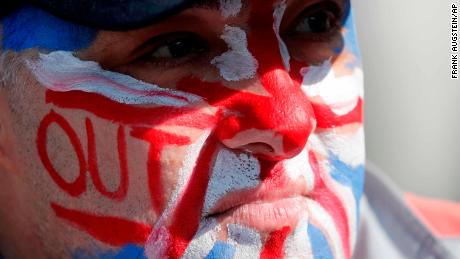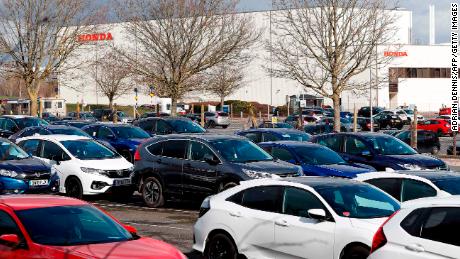London (CNN Business)Businesses in the United Kingdom have been hobbled by Brexit uncertainty for three years. They want a resolution, fast.
The clamor for certainty could soon be satisfied. An election, which appears increasingly likely before the end of the year, could help lift the fog. But it would also carry big risks.
"Clarity on its own is not good," said Kallum Pickering, senior economist at Berenberg Bank. "It depends what becomes clear."
A general election could generate yet more deadlock by returning another hung Parliament in which no party has a clear majority. Or Prime Minister Boris Johnson could wind up emboldened, resurfacing fears of a damaging "no deal" departure from the European Union. It could also open the door to a left-wing government led by Jeremy Corbyn, which investors fear would lead to radical new policies.
For businesses, it's the opposite of a sure bet.
"There are lots of ways this could unfold," said Pickering.
Election prospects
Since 2016, the din surrounding Brexit has battered both businesses and investors in the United Kingdom.
Companies have had to contend with the high costs of contingency planning while battling an environment in which it's almost impossible to map out future investments. Manufacturing, and the autos sector in particular, have been hammered by a drop-off in demand. Meanwhile, the pound has dropped from nearly $1.50 before the Brexit vote to roughly $1.23. Shares in UK-focused companies have underperformed US stocks.
An election, then, presents an opportunity. It could increase the odds of a second referendum, which could scuttle Brexit altogether. And at the very least, it's thought to diminish the prospects of crashing out of the EU without a deal, which most businesses and investors see as catastrophic.
"The problem is that 'no deal' actually creates the biggest uncertainty," Lord Karan Bilimoria, vice president of the Confederation of British Industry, a lobby group, told CNN's Richard Quest last week.
As Brexit turmoil reaches a fever pitch, an election later this year looks almost guaranteed, even if the exact timing remains unclear. Parliament, which is suspended for the next five weeks, rejected Johnson's call for an election before the Brexit deadline of October 31 for a second time on Monday. This rules out the imminent threat of an exit from the European Union without a deal to protect the economy.
Risky business
So far, investors are reading the prospects of a new vote as a positive development.
"We already know a little bit about what the market thinks [of an election], because the pound is doing quite well over the past couple of days," Pickering said. "There's probably some hope in markets and [among] businesses that we'll have a resolution soon."
But sentiment could quickly change based on polling.
"What would happen if Boris Johnson and [hard-line Brexit Party leader] Nigel Farage join forces, and together start to do well in the polls? That would completely change the situation," Pickering said.
Should Johnson's Conservatives increase the seats they hold in Parliament as the result of an election, Johnson could overturn legislation barring a no-deal departure. Businesses would be back to square one.
The other side of that coin is an outright Labour majority led by Corbyn, who terrifies some in the business community. The Labour Party's manifesto from 2017, its most recent, clearly spells out that the party would "overhaul" regulation of the financial system and nationalize certain "key" utilities.
"We're probably looking at a government that favors higher taxes, higher spending and higher regulations," said Dean Turner, economist at UBS Wealth Management. Business leaders worry that his policies would eat into profits, slow growth and hit asset prices.
But Turner points out that Labour, if it emerged victorious, would likely have to govern via a coalition or cooperation agreement. This could mitigate the potential for the party to pursue any policies that businesses may view as extreme.
"Investors will be much more relaxed about Jeremy Corbyn if he has to join a coalition with Liberal Democrats," Pickering said. "They will constrain his worst instincts."
Deutsche Bank strategist Oliver Harvey last week called an election the "least worst of all scenarios." Labour policies would be temporary and reversible, as opposed to the "permanent shock caused by a no deal Brexit," he wrote in a research note.
But recent polling indicates that an election could very well produce another hung Parliament, putting businesses in an impossible position once again.
"This is pure uncertainty," Pickering said. "There are too many routes forward."















